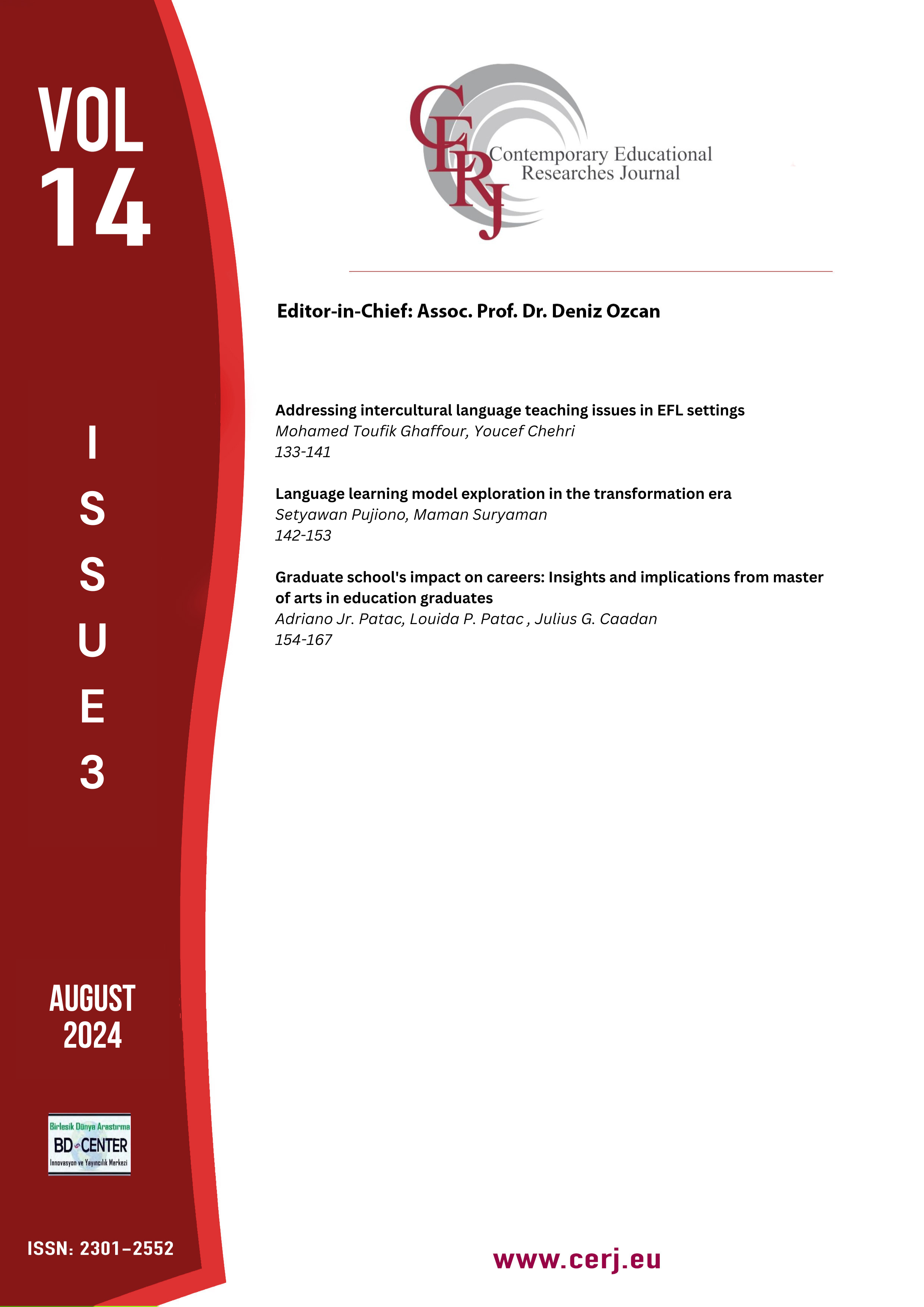Addressing intercultural language teaching issues in EFL settings
Main Article Content
Abstract
Globalization has made intercultural competence essential for EFL learners, yet traditional approaches like grammar-translation and communicative language teaching remain prevalent in Algeria. These methods focus primarily on language mechanics, lacking a foundation for developing intercultural skills. This study advocates for adopting an intercultural language teaching approach in Algerian EFL classrooms to better prepare students for effective communication in multicultural contexts. Through literature analysis and classroom observations, the study finds that current practices inadequately address students' intercultural needs. In contrast, ILT fosters critical cultural awareness, empathy, and adaptability, providing a more comprehensive framework for building intercultural communicative competence. It is recommended that policymakers and educators support ILT integration, especially in oral expression classes where students actively engage. Emphasis on teacher training and curriculum reform would help embed this intercultural framework in the classroom, thereby developing EFL learners who are both linguistically skilled and culturally adaptive communicators.
Keywords: Communicative competence; English as a foreign language; intercultural; language teaching
Downloads
Article Details

This work is licensed under a Creative Commons Attribution-NonCommercial-NoDerivatives 4.0 International License.
Authors who publish with this journal agree to the following terms:
- Authors retain copyright and grant the journal right of first publication with the work simultaneously licensed under a Creative Commons Attribution License that allows others to share the work with an acknowledgement of the work's authorship and initial publication in this journal.
- Authors are able to enter into separate, additional contractual arrangements for the non-exclusive distribution of the journal's published version of the work (e.g., post it to an institutional repository or publish it in a book), with an acknowledgement of its initial publication in this journal.
- Authors are permitted and encouraged to post their work online (e.g., in institutional repositories or on their website) prior to and during the submission process, as it can lead to productive exchanges, as well as earlier and greater citation of published work (See The Effect of Open Access).
